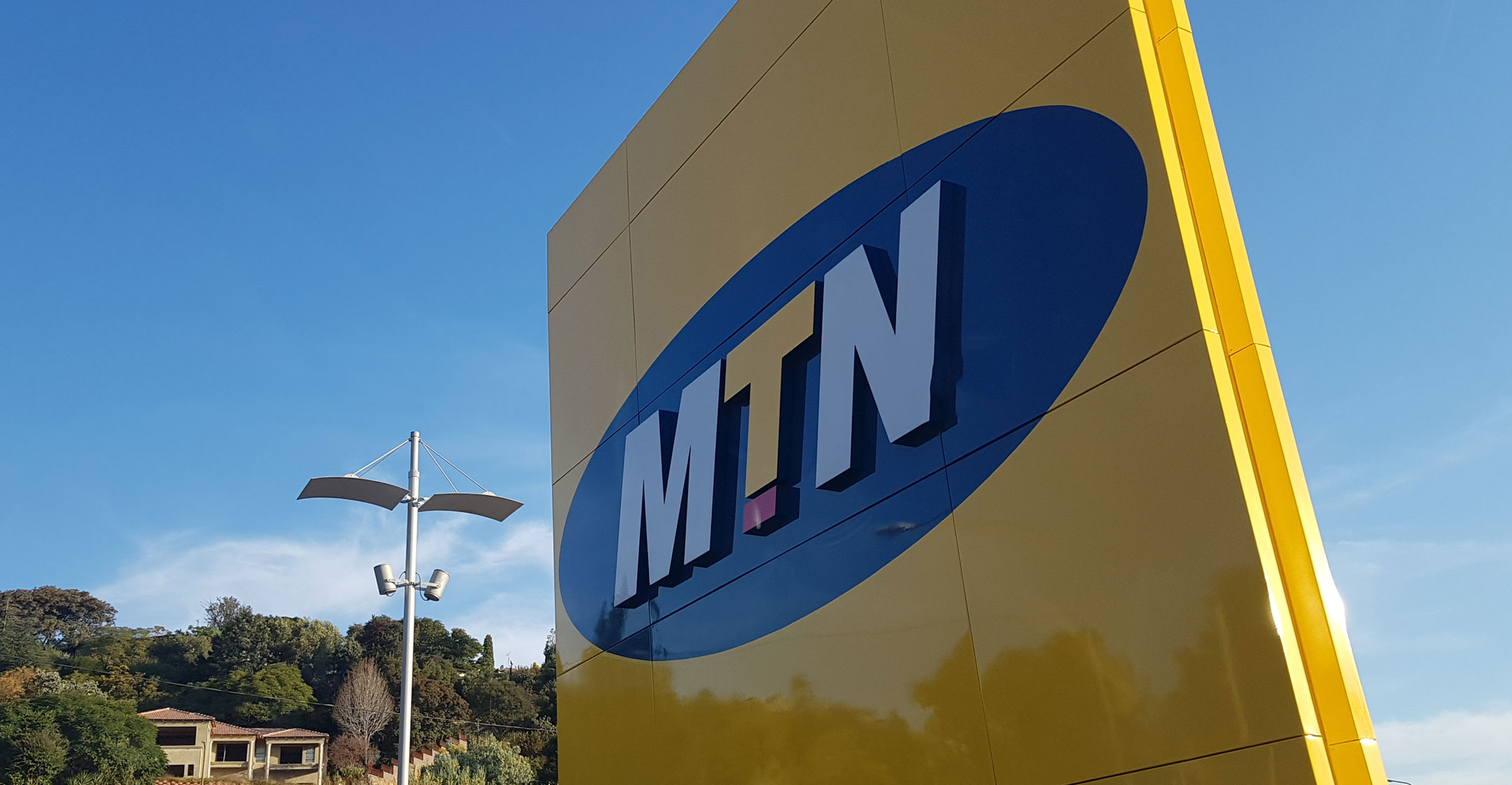
Government’s Electronic Communications Amendment Bill is unconstitutional, will create a new infrastructure monopoly in the form of a proposed wholesale open-access network (Woan) and will ultimately be detrimental to consumers.
Those are some of the key arguments in MTN South Africa’s submission to the department of telecommunications & postal services over the contentious bill, which, if enacted in its current form, will likely lead to legal challenges.
The department is set to hold a high-level meeting with the operators and other industry role players in early March to discuss the bill. Interested parties had until 31 January to make submissions to government on the bill.
The draft legislation represents the “most aggressive telecoms legislative intervention into a developed telecoms market anywhere”, MTN warned.
The bill, it said, proposes a “comprehensive U-turn on a model that delivered tens of billions (of rand) of investments, competitive broadband infrastructure, even in rural areas, and world-class choice and innovation, in favour of an untested and extreme regulatory model centred on re-monopolisation of infrastructure, cost-based access and expropriation of property”.
Government is coming under growing pressure withdraw the bill as concerns mount about the potential negative impact it could have on the sector, and on the South African economy more broadly.
The bill, MTN said, violates the property clause in the constitution, fails to meet the rationality requirement imposed by section 1(c) and section 22 of the constitution, and is “impermissibly vague”.
“In an industry characterised by dynamism, all the economic evidence has shown that relying on what will essentially become a single solution infrastructure will undermine South Africa’s engine for economic growth and jobs,” the operator said in its submission.
“This unique, untested and extreme regulatory model has been introduced based on an impact assessment that is entirely qualitative; focused on a list of hypothetical benefits, which appear to be unsupported by the economic literature and market research; and largely unconcerned about its impact on investment and innovation incentives.”
‘Serious constitutional issues’
Even if the “serious constitutional issues” raised by the bill are addressed, the law should not be changed until an “in-depth and quantitative understanding of the balance of costs and benefits for these radical proposals are fully understood and laid out before the legislator”.
Two of the most contentious aspects of the bill are a plan to introduce the government-backed but privately owned Woan, to which most if not all future mobile spectrum will be allocated, and a plan to force “open access” on the commercial operators. This proposed open-access regime will force operators to share their network infrastructure with the Woan and other licensed companies.
“The proposed amendments dealing with the Woan and the open-access regime will not achieve their stated objectives,” MTN warned in its submission. “Appropriate regulation should encourage economic transformation, promote competition, encourage investment, reduce unnecessary costs and remove obstacles for firms to compete. The proposed regulatory interventions in the bill will not do so: on the contrary, they will harm incentives to invest, and will harm competition and consumers, in particular the poorest and most vulnerable consumers.”

On open access, MTN said a reasonable and objective economic rationale (a threshold assessment) must be put in place before the proposed amendment on open access and cost-based pricing is triggered.
“If the latter is not managed properly, unintended consequences are likely to occur, which may give rise to disputes and litigation. Much-needed investment and innovation in the ICT sector will be stifled should this bill be enacted in its current form,” it said.
“Some of the key (objectives) of the bill, such as the promotion of investment, innovation, research and development, cannot possibly be achieved by legislation that adds massive uncertainty and permits the deprivation of property of the mobile network operators,” MTN added. “Moreover, the Woan will not have incentives to invest efficiently, or efficiently to utilise the high-demand (mobile) spectrum that will be licensed to it.
“The bill will directly harm competition among operators and will thereby directly hinder the pursuit of the most important (objectives) of the bill, which are to promote the universal provision of electronic communications networks and electronic communications services and connectivity for all, and to promote the interests of consumers regarding the price, quality and the variety of electronic communications services. Harming competition will also directly harm the efficiency with which radio frequency spectrum is used.”
The company said the planned Woan will be entitled to access commercial operators’ infrastructure based on “cost-based pricing”. This will destroy the operators’ incentives to invest in the maintenance and repair of existing infrastructure, and investment in any further infrastructure, it said.
In addition, the commercial operators could lose their existing spectrum licences, because the bill requires communications regulator Icasa to make recommendations to the minister regarding the “return of spectrum”.
“Investments in network infrastructure are typically made several years in advance, to ensure that network capacity grows faster than network demand. Moreover, investments in network infrastructure are cumulative, and may only be recovered over a period of several years, if ever,” MTN said.
“This provision will severely harm a mobile network operator’s incentive to invest in further infrastructure… The ability to recover infrastructure investments in future is critically dependent on spectrum holdings in those future years. If there is uncertainty over those future spectrum holdings, then this will significantly harm incentives to invest.”
‘Fierce competition’
Competition, the company said, has “served consumers well” and the bill seeks to undermine this. “Fierce competition” has led to “continuous and significant investments that have resulted in nearly universal coverage, the delivery of data volumes that have grown exponentially, network quality that has constantly improved, and pricing that has fallen dramatically year after year.
“After more than a century of monopoly in relation to fixed-line services, Telkom had only reached around four million subscribers by 1994, and that number has not grown since. Indeed, fixed subscribers have fallen in the past few years. By contrast, in 2016, there were a total of 87m active mobile Sims or subscriptions on South Africa’s networks, and 37.5m unique mobile subscribers, a 68% population penetration rate.”
The proposals contained in the bill will “directly harm incentives to invest (and) will harm competition … in particular incentives to compete on continuously investing in improving network infrastructure to meet exponential growth in demand for data connectivity”.

“In the form proposed by the bill, the Woan would be antithetical to the promotion of competition. It would effectively operate as a monopolistic wholesale player and would moreover be created and operate under considerable uncertainty,” MTN said. “The Woan would have no incentives to invest and compete, given the provisions in the bill, which would not provide it with the incentives to invest in infrastructure or to use spectrum efficiently.”
Instead of fostering infrastructure-based competition, government wants to promote competition at the services level. But MTN said this is a bad idea. It would “directly harmful to consumers if service-based competition were to be seen in a vacuum, isolated from infrastructure competition.
“Service-based competition depends on infrastructure competition, which makes available network capacity that can then be sold to subscribers. Obviously, service-based competition can only compete prices down to the level of the available network capabilities that are the result of infrastructure competition, and service-based competition cannot affect the quality or capacity of network infrastructure.
“A selective and restricted focus on service-based competition, while destroying incentives for infrastructure competition, would be directly harmful to consumers. It would be as short-sighted as legislating for a monopoly bread bakery, in the hope that competition between grocery retailers would drive good quality, low prices and widespread availability of bread.” — © 2018 NewsCentral Media




